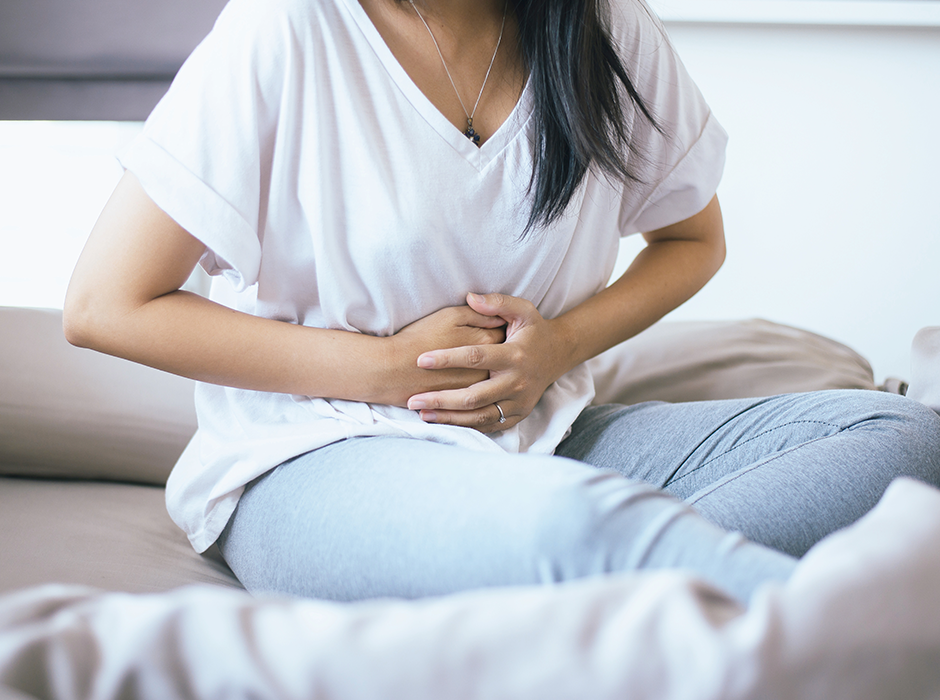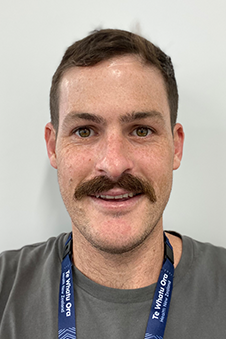
The increasing rate of early onset colorectal cancer in younger New Zealanders, especially Māori, is a grave concern says Dr Oliver Waddell.
There’s a fresh call for a lowering of the bowel cancer screening age in Aotearoa New Zealand, in the wake of new University of Otago, Christchurch, research showing an alarming rise in colorectal cancer rates in younger New Zealanders – especially Māori.
The findings, published in the UK’s Biomed Central (BMC) medical journal, show while colorectal cancer rates (CRC) in older age groups have actually decreased, (possibly in part due to older New Zealanders taking part in bowel cancer screening) rates of early onset colorectal cancer (EOCRC) have risen by 26 per cent per decade on average over the past twenty years.
The study is the most up-to-date, population-based data yet presented describing overall trends in CRC incidence in Aotearoa New Zealand by age, sex, and site of disease, between 2000 and 2020.
It shows that of a total of 56,761 cases of CRC diagnosed in New Zealand during this time, 3,702 of these were early onset. Incidence of EOCRC increased by 26 per cent per decade on average during that time period (with 44 per cent of all EOCRC occurring in the 45 to 49-year age group), compared with an 18 per cent decrease per decade in those aged 50-79.
The study data modelling predicts that if these trends continue to 2040, there will be 524 cases of early onset colorectal cancer diagnosed per year in Aotearoa New Zealand, an increase of 255 cases per year when compared with numbers seen in 2020.

Dr Oliver Waddell
Lead author Dr Oliver Waddell, from the campus’s Department of Surgery, says of particular concern, the results show CRC rates in Māori are increasing disproportionately in comparison to the overall population, driven by increasing numbers of younger Māori patients. While overall incidence of CRC remains lower in Māori compared to the total population, incidence rates of colorectal cancer in Māori under 50 years rose by 36 per cent per decade on average, faster than the rates seen in the total population (26 per cent). Māori are also disproportionately affected by EOCRC, with 18 per cent of all cases diagnosed in Māori in 2020 being under the age of 50 years, compared to 8.5 per cent in the overall population.
“This is of grave concern, because once they are diagnosed with colorectal cancer, Māori are more likely to die from their disease than non-Māori, and also more likely to be diagnosed with stage 4 advanced disease, possibly due to delayed diagnosis and inequitable access to cancer treatment,” Dr Waddell says.
“If these increases go on unchecked, we will see colorectal cancer rates in Māori overtake those of the general population.”
On the back of these findings, the study authors are now calling for the bowel cancer screening age in Aotearoa New Zealand (currently 60 for non-Māori and 50 for Māori) to be extended and lowered further, to help combat inequity.
“We believe screening for average-risk people in New Zealand should start at at least age 45,” Dr Waddell says.
“Unfortunately, in over a third of patients diagnosed with a bowel cancer under the age of 50, by the time symptoms have developed, the cancer has already spread to stage 4 disease, so we need to find these cancers earlier before it’s too late for a cure.”
The study reports that Canada, UK, and Germany screen their general population from age 50, while the USA and Australia recently decided to screen from age 45, with several American guidelines now recommending screening from age 45 for all.
“Increasing our endoscopy capacity should be a priority to allow us to match these other countries, because in the long term it will save the New Zealand health system money from reduced treatment costs due to earlier diagnosis, not to mention the lives that will be saved,” Dr Waddell says.
The authors say one issue affecting EOCRC internationally is diagnostic delay, contributing to more advanced disease and poorer outcomes.
“These delays may be driven by younger patients not seeking medical advice for symptoms, or doctors not appreciating the epidemiological shift in the pattern of this disease and, therefore, not investigating young patients appropriately,” Dr Waddell says.
“One recent international study found that the largest contributor to delays in early onset diagnosis was due to younger patients not seeking medical advice, with a median time from symptom onset to seeing a doctor of 121 days, compared to only 21 days in patients over 50 years, so improving patient education about when to seek medical attention may help improve things.”
This pattern is not confined to Aotearoa New Zealand, with increases in rates of EOCRC being observed in at least 18 other countries around the world.
The authors say more research is needed to establish why rates are rising so dramatically both here and overseas. While conventional risk factors for bowel cancer are known (such as obesity, alcohol, processed meat, sugary drinks and a high-fat, low-fibre diet), they say the microbiome in EOCRC patients differs – possibly reflecting the impact of early life events and/or environmental factors such a caesarean delivery, formula feeding, antibiotic use, changing diet, synthetic food dyes, MSG high fructose corn syrup, or microplastics.
The authors emphasise that despite the rising incidence of EOCRC, CRC remains largely a disease of older adults. New Zealand has one of the highest rates of bowel cancer in the world, with over 3000 diagnosed annually, second only to prostate and breast cancers. It remains the second highest cause of cancer death with over 1,200 people dying each year as a result.
Dr Waddell says the increasing impact of our ageing population is also likely to become a huge factor in coming years and a major challenge for our already struggling health system. The number of people aged over 80 is set to double by 2040, with bowel cancer rates in this age group predicted to increase from 800 to over 1800 during that time.